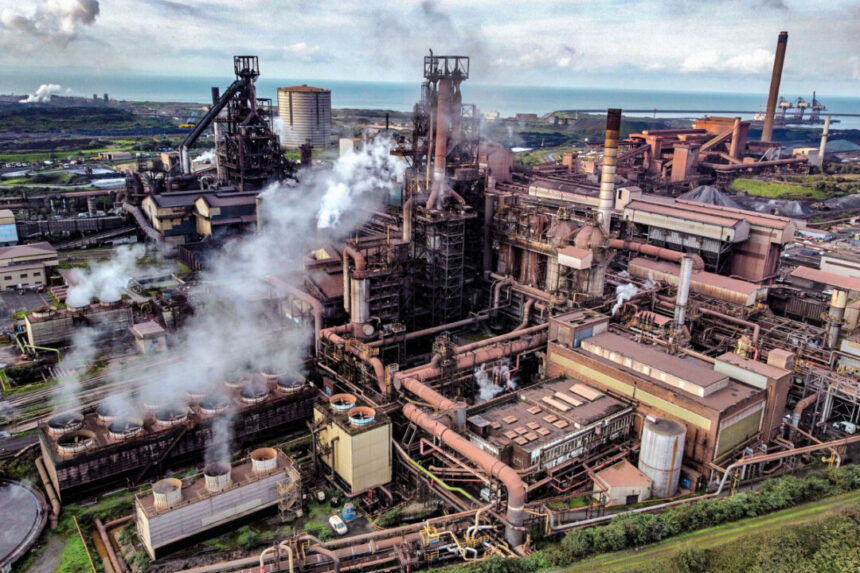Phasing out coal power is a crucial part of the government’s net zero strategy to reduce the carbon footprint of power plants.
The UK’s final coal-fired power plant is set to close on Monday in Port Talbot, signaling a shift to electric arc steel production.
This move towards a green furnace is part of the UK’s net zero program, which is focused on decarbonizing the economy.
The closure of the last blast furnace at Tata Steel’s Port Talbot plant marks the end of an era in traditional steelmaking methods in South Wales. The plant currently uses coke, a carbon-intensive fuel derived from coal, to produce steel. Following the transition to electric arc furnaces, the plant will utilize electric currents to melt scrap steel or iron and produce steel.
Since its peak in the 1960s, when over 18,000 individuals were employed at Port Talbot’s Abbey steelworks, the site has undergone numerous changes, including strikes and workforce reductions. Indian conglomerate Tata acquired the steelworks in 2007.
The restructuring at the Port Talbot site puts 2,800 jobs at risk, but the government has promised to support workers and local businesses heavily reliant on Tata Steel.
Following discussions between Tata Steel and trade unions, departing employees will receive a minimum redundancy payment of £15,000 plus a £5,000 “retention” bonus.
Under the agreement, workers facing redundancy can enroll in a training program to acquire in-demand skills.
Business and Trade Secretary Jonathan Reynolds stated that the deal offers “hope for the future” of steelmaking in South Wales.
“Steel plays a fundamental role in the UK’s economy, sovereignty, and communities, but past governmental inaction has adversely affected the steelmaking sector. This government is taking decisive action through a new deal and strategy to revitalize the industry and outline a sustainable future,” Reynolds explained in a statement.
Secretary of State for Wales Jo Stevens pledged to support businesses and workers in Port Talbot and across South Wales.
‘Industrial Vandalism’
Unite General Secretary Sharon Graham described the job losses as “industrial vandalism,” attributing them to years of underinvestment resulting in delayed and insufficient transitions. While Graham welcomed Labour’s commitment to invest in South Wales steelmaking, she emphasized the union’s demand for security for Tata’s 5,000 jobs.
The government has confirmed that the new deal will not incur additional costs for taxpayers.
If Tata Steel fails to fulfill its commitments and retain 5,000 jobs across its UK operations post-transition, the government will seek higher penalty payments.
Unite is currently in talks with Tata regarding the second phase of investment, focusing on new processing lines and associated jobs at Port Talbot and Llanwern over the next year.
Unite Regional Secretary for Wales Peter Hughes stressed the importance of rebuilding a robust steel industry in South Wales as a top priority.
“Unite will persist in its efforts to achieve this goal,” he added.
Labour plans to unveil a new strategy for the steel sector in spring 2025 following consultations with industry stakeholders.
The government has committed to expediting the transition to net zero, launching GB Energy after its victory in the recent general election. GB Energy, a state-owned entity tasked with operating energy projects, will receive £8.3 billion in funding over the upcoming Parliament.
Can you please rewrite this sentence?
Source link






